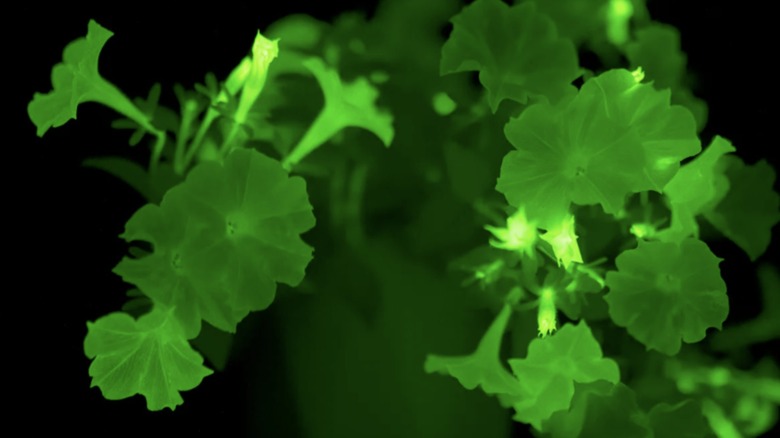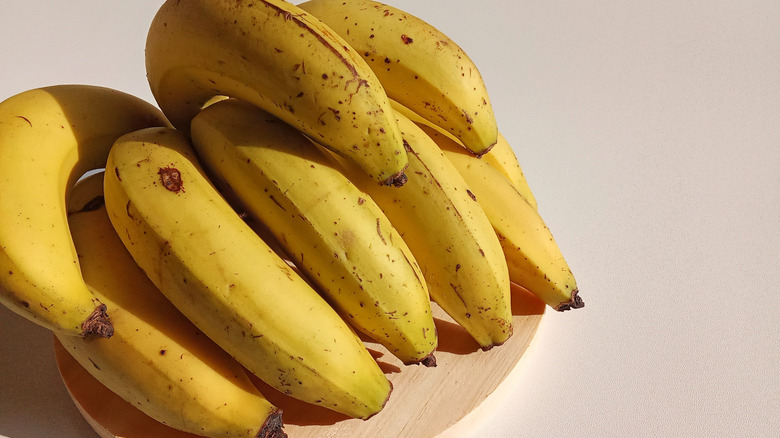The Gardening Hack To Make Glow-In-The-Dark Petunias Shine Brightly
If you've ever seen bioluminescence in nature, you know it is something to behold. Bioluminescence is a chemical reaction found in living organisms, usually found in the ocean. This phenomenon is a rarer occurrence on land, but can be seen in a small number of beetles, fireflies, fungi, and the aptly named glow worm. However, as of spring 2025, you can witness bioluminescence nightly, from a common flower.
The company Light Bio has successfully spliced a bioluminescent mushroom (Neonothopanus nambi) with petunias (Petunia atkinsiana), and you can now buy these bioluminescent houseplants for your own garden. Light Bio has named them Firefly Petunias ($39.99 for three young plants), and they grow well in gardens, hanging baskets, or pots. During the day, they look like typical white petunias, but at night, they give off a soft bioluminescent glow akin to moonlight.
These flowers are genetically engineered to glow and require no special treatment to do so. However, an overripe banana is the secret to achieving a brighter glow from your petunias. Place a ripe banana skin next to your Firefly Petunia and watch in awe as it shines more brightly. Also, just like the glow-in-the-dark toys you held up to a lamp as a kid, the more light the petunias get, the brighter they will be come nightfall (Light Bio recommends at least six hours of sunlight per day).
Why do bananas affect luminescence?
This unusual banana hack works because bananas produce ethylene gas, a plant hormone that speeds up the ripening process. You've probably heard not to store bananas with other fruits and vegetables because it causes them to spoil more quickly. You may have also used this to your advantage, placing a banana in a bag with a rock-hard avocado to soften it in time for dinner. There are other fruits and vegetables that produce ethylene, however, bananas do so in a higher quantity.
So what does this have to do with bioluminescence? Like sunlight, water, and a good fertilizer, ethylene gas speeds up the petunias' metabolism, which directly affects their glow. This is backed up by the research of Planta, a Russian company that was the first to experiment with bioluminescent plants, and contributed to Light Bio's research. In an article for the National Library of Medicine, Planta researchers said that ripe banana skins dramatically increased a plant's luminescence. Interestingly, bananas are also the only fruit or vegetable to have bright blue luminescence under blacklight, due to a rapid breakdown of chlorophyll once they start to ripen.

